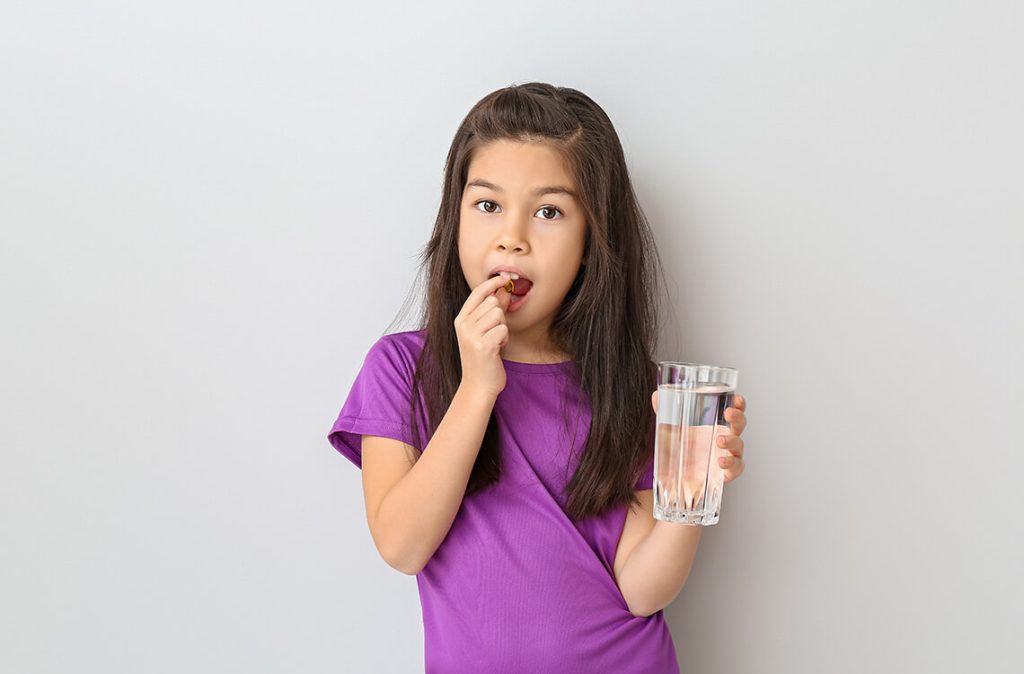If you’re a parent, you may be ambivalent towards supplements.
Especially where your kids are concerned. Some parents may think they’re overkill while others are fierce advocates.
At the end of the day, it really depends on your children’s dietary needs.
Kids today are getting more and more picky about what they eat, so they may be more malnourished than their predecessors.
In these cases, supplements may be crucial.
But one thing’s for sure, even if your children aren’t malnourished, they may stand to benefit from certain kinds of supplements.
Here are 6 supplements that may benefit your child’s health.
Supplements to Help Boost Your Kids’ Health
Omega-3 Fatty Acids
The holy grail of supplements, omega-3 fatty acids have a wealth of health benefits that simply cannot be overlooked.
It can promote brain health, maintain eyesight, boost cognitive development and even fight off mental disorders like depression and anxiety.
If your child has ADHD, they may benefit from omega-3 supplements since it can improve focus, memory and concentration.
The recommended dosages is 0.7 grams for kids between 1 and 3 and 0.9 for those between the ages of 4 and 8.
Natural whole-food substitutes of omega-3 fatty acids include mackerel, salmon, sardines, walnuts and cod liver oil.
Probiotics
Probiotics are the live microorganisms in your intestines that support healthy digestion and absorption of nutrients.
They also have the added benefit of boosting your natural immune system, reducing inflammation, improving eczema and even controlling allergies.
If your child frequently suffers from gastrointestinal issues like constipation, acid reflux, or diarrhoea, then probiotics may be a good idea.
Capsule and tablet forms usually have a set dosage so follow what it says on the bottle.
But if you’re looking for natural whole-food sources of probiotics, you can opt for yogurt, pickles, tempeh and other fermented foods.
Choline
Just like omega-3s, choline can boost your brain power and improve cognitive function. Which is helpful if your kids struggle with things like homework and revisions.
It’s also been found to enhance your memory and mental focus, allowing you to retain more information longer. In addition, choline can also help with asthma, heart health and metabolism.
The recommended dosage for kids between the ages of is no more than 550 mg.
Natural whole-food substitutes of choline include eggs, spinach, poultry, red meat and salmon.
Vitamin D
Many people drink gallons and gallons of milk hoping to keep their bones strong and healthy. But without sufficient vitamin D, all that calcium will go to waste.
One of the main functions of vitamin D is in helping your body absorb all the calcium that you consume. When taking capsules of tablets the recommended dosage of vitamin D for kids 4 years and up is no more than 20mcg.
Natural whole-food substitutes of vitamin D include oily fish like salmon, sardines and mackerel, egg yolks and mushrooms.
But if you’re already supplementing your child with omega-3 rich ingredients like cod liver oil, then you’re pretty much covered on the vitamin D front as well.
Spirulina
While not a vitamin, mineral or essential compound, spirulina on its own is chockful of various micronutrients like vitamins A, E, K, B (1, 2 and 3), omega-3 fatty acids, iron, copper and magnesium.
It also contains high amounts of antioxidants, which can help prevent inflammation and other symptoms of oxidative damage like fatigue, headache, and poor eyesight.
According to studies, supplementing with spirulina can also reduce blood pressure, alleviate allergic rhinitis, improve muscle strength and endurance and even aid in controlling blood sugar.
Spirulina is food-grade so it’s relatively safe for children. As long as you follow the recommended dosage in the bottle, everything should be fine.
The usual amounts can range anywhere between 3g to 10g.
Iron
Iron is an important component in generation haemoglobin-rich red blood cells.
Without sufficient iron, you may be easily fatigued due to not enough oxygen and nutrients being delivered throughout your body.
Other more telltale symptoms of iron deficiency in kids include muscle weakness, delayed motor skills, social withdrawal, behavioural issues and susceptibility to infections like colds and flu.
Typical dosages of iron supplements in capsule and tablet forms 30 mg for kids aged 5 to 12.
When supplementing with whole foods, consider spinach, red meat, oatmeal, shellfish and legumes.
Choosing the Right Supplements
Each supplement has their role to play in your child’s overall health. You of course don’t need to get every supplement on this list.
Many companies make special supplement blends that contain many of the ones already mentioned. You may be tempted to just buy a multivitamin and be done with it. But don’t be fooled; multivitamins aren’t all they’re cracked up to be.
And when talking about natural versus synthetic, there really isn’t that much difference so put your worries at rest.
If supplements feel too excessive or troublesome for your kids, then fortify their diet with whole foods instead.
For picky eaters, it’s always a good idea to sneak in fruits and veggies in their food by using purees and juices.
As always, consult a physician when getting your kids on a new dietary regime.
Disclaimer: The information provided in this article is for informational purposes only and should not be considered as medical advice from Motherhood. For any health-related concerns, it is advisable to consult with a qualified healthcare professional or medical practitioner.
For more insightful stories and fun recipes, stay tuned to Motherhood Story!
